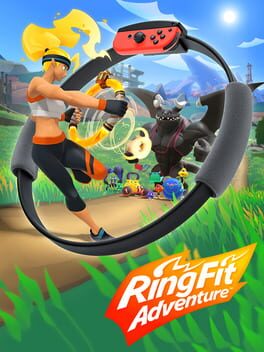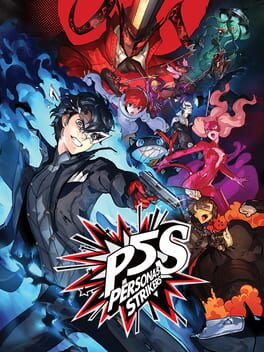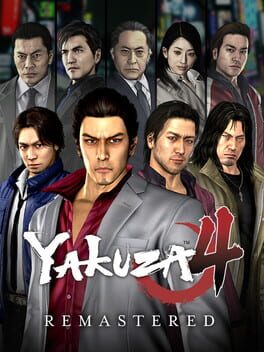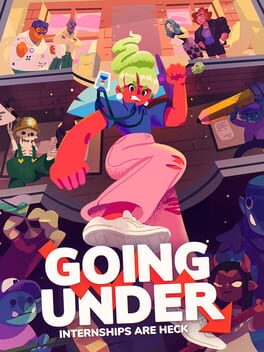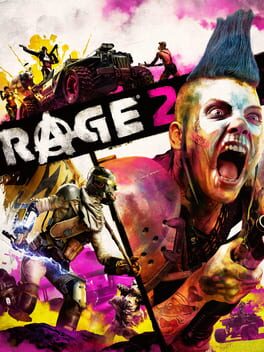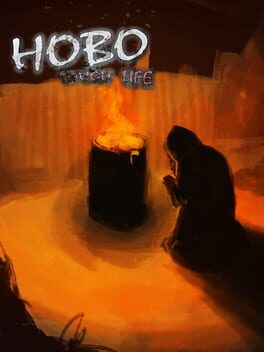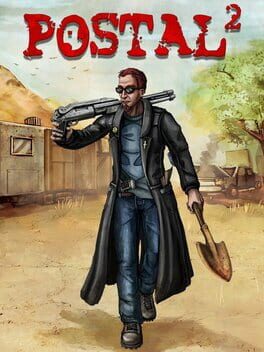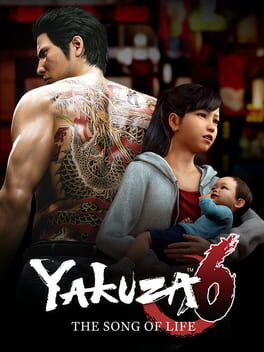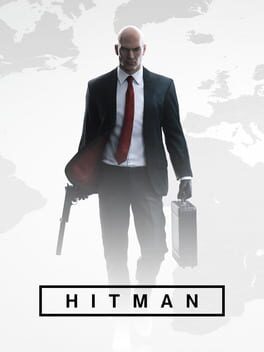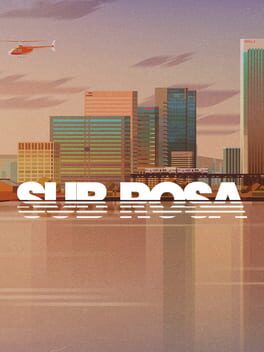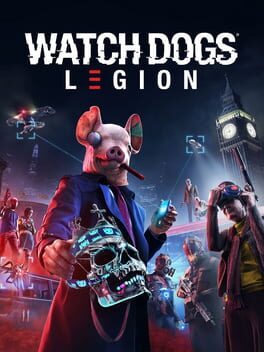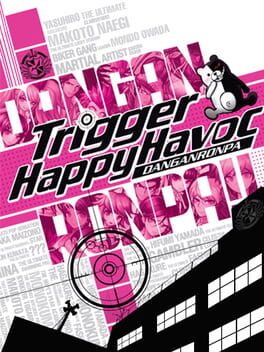jobosno
BACKER
2019
Quite possibly the best fitness game ever made. The control setup makes it hard to cheat, and the game was very clearly made by people who understand game design. I am a fat guy who hates the very idea of sweating and I found myself wanting to quit multiple times but continuing because "ah just a little bit left". The game-ification elements are masterfully implemented and the game respects your intelligence. You know you're exercising - it's not going to try and trick you into forgetting that - but it's going to show you all those satisfying numbers going up and you're going to want to keep going. I've played a number of fitness games, but nothing that so masterfully uses game mechanics to keep players engaged.
The kind of slimy engagement-bait that are typically used to get players to sink neverending time and/or money are used here to keep your game-addicted brain exercising and I think it's fantastic.
The kind of slimy engagement-bait that are typically used to get players to sink neverending time and/or money are used here to keep your game-addicted brain exercising and I think it's fantastic.
2020
A musou game where you spend remarkably little time actually fighting anything - instead, you spend the majority of your time wading through the most banal, intrigue-less dialogue. The most efficient way to kill anything is a stealth attack followed by an All-Out Attack, made comically easy by the fact that at almost any time you can teleport to a spot that allows you to execute one of these surprise attacks. It means that you're not really fighting until you're on your way to the final boss of an area - fights which themselves lack any kind of real dynamism as it's mostly about using the same Persona abilities and showtime attacks until the health bar is depleted. This isn't a huge problem in a normal turn-based RPG, but for an action game this gets stale quickly.
I'd be a little less bitter about this game if it had any respect for my time, but after spending countless cycles of 5 minutes of real gameplay > 35 minutes of Yusuke jacking himself off, this game has eroded any goodwill I was willing to offer.
I'd be a little less bitter about this game if it had any respect for my time, but after spending countless cycles of 5 minutes of real gameplay > 35 minutes of Yusuke jacking himself off, this game has eroded any goodwill I was willing to offer.
2019
EDIT: i don't really like this review! i'm currently working through a replay of the entire series and hopefully i'll be inspired to put out something a little better than this after i do so.
Sure, it's fine. It's made better by the fact that you are presumably playing this after Y3 - a game where the combat consists of you burning everything in your arsenal to get the enemy to stop fucking blocking for one second jesus christ only for them to knock you down.
The four protagonists in this is an interesting move, but each of them only gets a couple chapters in the spotlight before the story's over, which lends the game a feeling of "Okay now quick! Look over here!" Some do better than others - you start the game with Akiyama, a character that outshines even Kiryu with his magnetism, only to switch to Saejima, who is a downright charisma vacuum. Despite having one of the more interesting stories, Saejima is a real one-note character and both his combat and his personality take the wind out of the story's sails for all but a single dramatic moment during his campaign. Kiryu himself is probably the least interesting he's been in any entry so far, so in retrospect it's probably better that they didn't try to write him into this story at an earlier point.
The different combat styles of each protagonist keep things relatively fresh, but can also be a source of frustration. I didn't have that much difficulty switching from the fast Akiyama to the slower Saejima, but that doesn't mean that it was pleasant at all to play. And may God help you during Tanimura's part of the four-part final boss, a fight so terrible that I want to go back to fighting Jingu to see if it's actually worse or if I'm just remembering the Jingu fight too fondly in comparison.
Anyway, about the real game: there are a ton of karaoke songs but you can't really play them until 10-15 hours in when you get Kiryu. Akiyama and Kiryu both do excellent versions of "Pure Love in Kamurocho", and Kiryu gets a "Machine Gun Kiss," which is the best karaoke song in the entire series. Saejima can't do karaoke at all, and Tanimura can only do two or three songs (the ones with backup portions, he doesn't sing). I appreciate Kiryu having like thirty goddamn songs, RGG Studios, but what's up with that?
Sure, it's fine. It's made better by the fact that you are presumably playing this after Y3 - a game where the combat consists of you burning everything in your arsenal to get the enemy to stop fucking blocking for one second jesus christ only for them to knock you down.
The four protagonists in this is an interesting move, but each of them only gets a couple chapters in the spotlight before the story's over, which lends the game a feeling of "Okay now quick! Look over here!" Some do better than others - you start the game with Akiyama, a character that outshines even Kiryu with his magnetism, only to switch to Saejima, who is a downright charisma vacuum. Despite having one of the more interesting stories, Saejima is a real one-note character and both his combat and his personality take the wind out of the story's sails for all but a single dramatic moment during his campaign. Kiryu himself is probably the least interesting he's been in any entry so far, so in retrospect it's probably better that they didn't try to write him into this story at an earlier point.
The different combat styles of each protagonist keep things relatively fresh, but can also be a source of frustration. I didn't have that much difficulty switching from the fast Akiyama to the slower Saejima, but that doesn't mean that it was pleasant at all to play. And may God help you during Tanimura's part of the four-part final boss, a fight so terrible that I want to go back to fighting Jingu to see if it's actually worse or if I'm just remembering the Jingu fight too fondly in comparison.
Anyway, about the real game: there are a ton of karaoke songs but you can't really play them until 10-15 hours in when you get Kiryu. Akiyama and Kiryu both do excellent versions of "Pure Love in Kamurocho", and Kiryu gets a "Machine Gun Kiss," which is the best karaoke song in the entire series. Saejima can't do karaoke at all, and Tanimura can only do two or three songs (the ones with backup portions, he doesn't sing). I appreciate Kiryu having like thirty goddamn songs, RGG Studios, but what's up with that?
2020
It's incredibly charming: from the very believable cast of characters, to the art style, to the interface itself, everything has that sleek, modern corporate feel. It's incredibly well-done parody and I just wish the gameplay was as good as everything else.
The abilities are interesting! The weapon variety is surprisingly large! The dungeon environments are just as fun as the hub area. It's mechanically interesting (although not very deep) and the wit and jokes from the hub area extend below too. It just really, really sucks the wind out my sails when trying to hit anything with most weapons becomes one of the Labors of Hercules. I suspect this is primarily due to the stiff way your character moves around. This control scheme is jank enough to turn the game as a whole into a chore, which is a shame given how perfectly executed everything else is. I want to know more about swomp! I want to see what happens to the Flavor guy whose passion for what he does gets ignored or exploited, depending on the day! I just don't have it in me to fight the game itself - although I guess it's kind of fitting to have the game show off a shiny, polished exterior while it wears down my will to go on.
The abilities are interesting! The weapon variety is surprisingly large! The dungeon environments are just as fun as the hub area. It's mechanically interesting (although not very deep) and the wit and jokes from the hub area extend below too. It just really, really sucks the wind out my sails when trying to hit anything with most weapons becomes one of the Labors of Hercules. I suspect this is primarily due to the stiff way your character moves around. This control scheme is jank enough to turn the game as a whole into a chore, which is a shame given how perfectly executed everything else is. I want to know more about swomp! I want to see what happens to the Flavor guy whose passion for what he does gets ignored or exploited, depending on the day! I just don't have it in me to fight the game itself - although I guess it's kind of fitting to have the game show off a shiny, polished exterior while it wears down my will to go on.
2019
Most of what I experienced in Rage 2 is baffling to me. The first time I played this game, I only made it 20 minutes in before I had to close it due to the worst case of secondhand embarrassment I've ever experienced. For some reason, I did come back.
Every single line, every individual plot point of this story is like it was written by two 12-year-olds after marathoning the Transformers movies and watching someone else play two hours of DOOM.
Games like this reveal to me that it's relatively easy to stumble into greatness with a game that strips away the "fluff" that comes with your typical AAA game. Just Cause 2 kicked ass because it seemed like it cared about its story less than the player even did, and after playing this (and the post-2010 Just Cause games) I'm starting to believe that Avalanche just doesn't know how to make a "conventional" game.
Every single line, every individual plot point of this story is like it was written by two 12-year-olds after marathoning the Transformers movies and watching someone else play two hours of DOOM.
Games like this reveal to me that it's relatively easy to stumble into greatness with a game that strips away the "fluff" that comes with your typical AAA game. Just Cause 2 kicked ass because it seemed like it cared about its story less than the player even did, and after playing this (and the post-2010 Just Cause games) I'm starting to believe that Avalanche just doesn't know how to make a "conventional" game.
2017
Genuinely a hateful game. If the store page isn't enough to convince you, just a couple minutes of playing the game shows that the game really has no interest in depicting homeless people as anything other than a spectacle, a zoo animal let loose upon the "civilized" world.
It's baked into the game, from the way it's sold to items in the game - everything is "trash" or "junk," always with some kind of implication that what you've taken is useless to intelligent people. It's in the trash, so of course it's not something most people would value, but the game still calls it "junk". It suggests a pointlessness, a failure to understand what might drive someone to comb through trash and what the things most people deem "trash" can mean to someone who is struggling. It's silly, yes, but language as framing is important, and if the game cared at all about letting you really inhabit the role it wouldn't use the language it does, no matter the intended level of respect.
Normally this is whatever, games that handle sensitive topics poorly are everywhere, but with this game it feels deliberate. By calling it "Tough Life" and having people threaten to beat the shit out of you because they can, having the police throw you in jail for arbitrary reasons, it feels like the developers have actually recognized the routine cruelty that homeless people face, and they have decided that it's funny.
It's baked into the game, from the way it's sold to items in the game - everything is "trash" or "junk," always with some kind of implication that what you've taken is useless to intelligent people. It's in the trash, so of course it's not something most people would value, but the game still calls it "junk". It suggests a pointlessness, a failure to understand what might drive someone to comb through trash and what the things most people deem "trash" can mean to someone who is struggling. It's silly, yes, but language as framing is important, and if the game cared at all about letting you really inhabit the role it wouldn't use the language it does, no matter the intended level of respect.
Normally this is whatever, games that handle sensitive topics poorly are everywhere, but with this game it feels deliberate. By calling it "Tough Life" and having people threaten to beat the shit out of you because they can, having the police throw you in jail for arbitrary reasons, it feels like the developers have actually recognized the routine cruelty that homeless people face, and they have decided that it's funny.
2003
It's not funny on a surface level and it only gets less so when you actually think about it - when I was 14 this game was a fascination of mine because what other game has mechanics like using a cat as a silencer, or pissing everywhere? In retrospect, I definitely mistook novelty for quality.
Also in retrospect, it's probably good that 14-year-old me thought this game didn't really have anything serious to say outside of the in-game protest. I was wrong, of course - it has plenty to say, but it's nothing meaningful, it's said poorly, and the ideas contained therein are not worth the time it takes to uncover them - they are certainly not worth the time it takes to make an entire goddamn video game.
Also in retrospect, it's probably good that 14-year-old me thought this game didn't really have anything serious to say outside of the in-game protest. I was wrong, of course - it has plenty to say, but it's nothing meaningful, it's said poorly, and the ideas contained therein are not worth the time it takes to uncover them - they are certainly not worth the time it takes to make an entire goddamn video game.
I won't include any spoilers here, but I want to say that this game is a fitting send-off for Kiryu - in truth, the only way it could end.
I love this game to death despite having quite a few gripes with it - I think I'm more fond of the Dragon Engine combat than most, with Kiwami 2 being one of my favorite games, but it still struggles a bit here. The Dragon Engine feels incredible in a number of situations, from throwing an enemy through a crowd of his friends to parrying someone into the follow-up foot-on-face heat action. Whenever you fight with one of Kiryu's many allies it feels truly chaotic and you feel like your pals are actually contributing even though they're really just repeatedly staggering enemies. Where it struggles, though, is the one-man-army fights where it pits Kiryu against 40 dudes, with 5 to 8 heavies. In these fights, not only is the fun sucked out as you are stunlocked by a group of heavies headbutting you in sync, but some of the tension the plot worked to build is relieved by having Kiryu bounce around like he's made of rubber.
Onomichi is a lovely new setting and the characters you meet there are some of my favorite in the entire series. After watching the Tojo Clan become more cold, more calculating, and more corporate over the past few games, the perspective shift to a small backwater family's look at the yakuza world is really refreshing and allows each of these characters to shine several orders of magnitude more brightly than I expected at the beginning.
I have a few other complaints that vary in significance: I spent four games waiting for Kamurocho Hills to be developed and I didn't get to see it in the new engine! I wish Haruka had more agency and was given more of an opportunity to directly impact the plot! There are a few characters who feel like they're there just so the game can remind you they exist without meaningfully incorporating them into the story. They got rid of the drug store, so if you struggle more than I did with the combat you might end up healing by eating 20 steamed buns one at a time.
None of these are enough to flip my opinion on the game - it's still a fitting final chapter for Kiryu that shows off what this character is really about: his values, his attempts to force the world around him into that framework, and his balancing act between being a good father figure and a man who is best able to solve a problem by punching his way through it.
I love this game to death despite having quite a few gripes with it - I think I'm more fond of the Dragon Engine combat than most, with Kiwami 2 being one of my favorite games, but it still struggles a bit here. The Dragon Engine feels incredible in a number of situations, from throwing an enemy through a crowd of his friends to parrying someone into the follow-up foot-on-face heat action. Whenever you fight with one of Kiryu's many allies it feels truly chaotic and you feel like your pals are actually contributing even though they're really just repeatedly staggering enemies. Where it struggles, though, is the one-man-army fights where it pits Kiryu against 40 dudes, with 5 to 8 heavies. In these fights, not only is the fun sucked out as you are stunlocked by a group of heavies headbutting you in sync, but some of the tension the plot worked to build is relieved by having Kiryu bounce around like he's made of rubber.
Onomichi is a lovely new setting and the characters you meet there are some of my favorite in the entire series. After watching the Tojo Clan become more cold, more calculating, and more corporate over the past few games, the perspective shift to a small backwater family's look at the yakuza world is really refreshing and allows each of these characters to shine several orders of magnitude more brightly than I expected at the beginning.
I have a few other complaints that vary in significance: I spent four games waiting for Kamurocho Hills to be developed and I didn't get to see it in the new engine! I wish Haruka had more agency and was given more of an opportunity to directly impact the plot! There are a few characters who feel like they're there just so the game can remind you they exist without meaningfully incorporating them into the story. They got rid of the drug store, so if you struggle more than I did with the combat you might end up healing by eating 20 steamed buns one at a time.
None of these are enough to flip my opinion on the game - it's still a fitting final chapter for Kiryu that shows off what this character is really about: his values, his attempts to force the world around him into that framework, and his balancing act between being a good father figure and a man who is best able to solve a problem by punching his way through it.
I've adapted everything after this line from a Twitter thread I wrote - please forgive any clumsiness:
I've finally beat Yakuza 6 and I'm convinced I'll never be able to return to Like A Dragon/Y7 after this. Not as some kind of protest for them writing Kiryu out of the series, but because I really don't understand the allure of it at this point. The cast of Y7 is so huge and I'm like 60% of the way to caring about any of them as characters, but Ichiban permanently feels like a jester even in serious moments and the most endearing members of the cast are barely given room to breathe. The combat is decent enough but right as it starts wearing out its welcome there is a massive difficulty spike that forces you to just sit there and grind these fights that you've already been choking down for 20 hours.
I don't know man. This series has routinely been clumsy, but I made it through some of those clumsy moments because they had built up my attachment to a couple cities, characters, and showed me that they were capable of creating new attachment to characters when I least expected it. Y7 has just been an exercise in patience, fighting through some dull moments and my rewards are either interactions with a few new charisma vacuums, or trying to make my monkey brain light up by coldly bringing out a character I recognize from a previous game.
The answer to this is "you don't have to play games you don't like" and unfortunately I might just have to accept that outcome at this point. I spent a long while convincing myself I was having fun because the game was polished and I didn't actively hate the combat, but in retrospect I was just biding my time in the hopes that a Yakuza game would turn itself around and hook me as it has so many times before, only to let me down this time. It took a return to the Kiryu saga before I could put my finger on it, but seeing Kiryu's interactions with the new characters in Onomichi and being pleasantly surprised by how much I cared about them, how charming they were and how real their emotions (and their bond) felt, it highlighted how lacking Y7 is in comparison. At this point, I've given this game 50 hours of my time and completed 12 full chapters and it's just worn out its welcome. I wanted so badly to like this game, and knowing that other people see something great here and I'm just missing it leaves me feeling so tired, man.
I've finally beat Yakuza 6 and I'm convinced I'll never be able to return to Like A Dragon/Y7 after this. Not as some kind of protest for them writing Kiryu out of the series, but because I really don't understand the allure of it at this point. The cast of Y7 is so huge and I'm like 60% of the way to caring about any of them as characters, but Ichiban permanently feels like a jester even in serious moments and the most endearing members of the cast are barely given room to breathe. The combat is decent enough but right as it starts wearing out its welcome there is a massive difficulty spike that forces you to just sit there and grind these fights that you've already been choking down for 20 hours.
I don't know man. This series has routinely been clumsy, but I made it through some of those clumsy moments because they had built up my attachment to a couple cities, characters, and showed me that they were capable of creating new attachment to characters when I least expected it. Y7 has just been an exercise in patience, fighting through some dull moments and my rewards are either interactions with a few new charisma vacuums, or trying to make my monkey brain light up by coldly bringing out a character I recognize from a previous game.
The answer to this is "you don't have to play games you don't like" and unfortunately I might just have to accept that outcome at this point. I spent a long while convincing myself I was having fun because the game was polished and I didn't actively hate the combat, but in retrospect I was just biding my time in the hopes that a Yakuza game would turn itself around and hook me as it has so many times before, only to let me down this time. It took a return to the Kiryu saga before I could put my finger on it, but seeing Kiryu's interactions with the new characters in Onomichi and being pleasantly surprised by how much I cared about them, how charming they were and how real their emotions (and their bond) felt, it highlighted how lacking Y7 is in comparison. At this point, I've given this game 50 hours of my time and completed 12 full chapters and it's just worn out its welcome. I wanted so badly to like this game, and knowing that other people see something great here and I'm just missing it leaves me feeling so tired, man.
2016
At the time it came out there were a lot of emotions tangled up in this. It had been 10 years since we saw a game that lived up to the Hitman name, but it was served to us as an always-online, episodic release. Paris was good, sure, but we had no idea what the upcoming levels would look like and whether IO would ever let us carry over our unlock progress when offline.
It's strange to look at now because it's obvious that everything turned out fine, that the World of Assassination trilogy ended up being even better than Blood Money was, that the QOL features imported from Absolution provided new depth instead of simply making the game easier, and that the entire trilogy when taken as a single, massive game would be one of the best games of the decade (perhaps ever?).
The gameplay core of the trilogy begins here, remaining relatively untouched throughout the three games. There are additions of course - it's strange to go back and play this game without briefcases, without bushes, but you really only notice these now that they've been added in later games. There are other minor changes of course, things that don't really sound big until you've put some time into the levels - enemies won't notice your reflection in mirrors, emetics send them to toilets instead of trash cans likes in later entries, etc.
All in all, there are a number of reasons why I would recommend people get Hitman 3, purchasing the older levels and playing them there. Not only is the entire trilogy in H3 roughly the same file size as H2016 is by itself, but little convenience features and performance optimizations have stacked up over 5 years. If you're getting H2016 for free and have never played a Hitman game before, play it and have a good time. But if you're looking at these games in 2021 and are trying to figure out how to best spend your own money, getting the complete trilogy inside Hitman 3 is by far the safest bet.
It's strange to look at now because it's obvious that everything turned out fine, that the World of Assassination trilogy ended up being even better than Blood Money was, that the QOL features imported from Absolution provided new depth instead of simply making the game easier, and that the entire trilogy when taken as a single, massive game would be one of the best games of the decade (perhaps ever?).
The gameplay core of the trilogy begins here, remaining relatively untouched throughout the three games. There are additions of course - it's strange to go back and play this game without briefcases, without bushes, but you really only notice these now that they've been added in later games. There are other minor changes of course, things that don't really sound big until you've put some time into the levels - enemies won't notice your reflection in mirrors, emetics send them to toilets instead of trash cans likes in later entries, etc.
All in all, there are a number of reasons why I would recommend people get Hitman 3, purchasing the older levels and playing them there. Not only is the entire trilogy in H3 roughly the same file size as H2016 is by itself, but little convenience features and performance optimizations have stacked up over 5 years. If you're getting H2016 for free and have never played a Hitman game before, play it and have a good time. But if you're looking at these games in 2021 and are trying to figure out how to best spend your own money, getting the complete trilogy inside Hitman 3 is by far the safest bet.
TBD
Tremendously fun, the only game I've found that can really simulate being part of that action movie scene where the deal goes wrong - you've got chaotic gunfights, car chases, double-crosses, thievery, and clean deals actually do happen often enough that you can never be sure if you're being conned or not.
Some of the most fun I've had in a game recently without any of the tilt. It's actually because it's so impossible to shoot guns both rapidly and accurately that makes this game work - gunfights are chaotic, more bullets hit the environment than your target, and you can't even really be sure that numbers advantage will win you the fight. The best bet for everyone is just to make the damn deal and get out of there alive.
At its best, it's the most fun I've had with a video game in a while - I don't mean engagement, I mean actual fun. At its worst, it's just your average internet chatroom, if a little better due to the fact that most people are generally committed to the roleplaying. The controls are jank and sometimes I think the first-person perspective results in a little too much chaos, but the core idea here is fantastic and fills a niche I've wanted to see done for ages.
E: It may be worth noting that I've only truly attempted to play the round-based game mode. For one, it's the only server type that sees a population of more than 5 people at a time, and thus it's the only one where people will explain the game to you, as playing the World mode will drop you into what is effectively an unmoderated GMod server, something I can get elsewhere and have no interest in playing here.
Some of the most fun I've had in a game recently without any of the tilt. It's actually because it's so impossible to shoot guns both rapidly and accurately that makes this game work - gunfights are chaotic, more bullets hit the environment than your target, and you can't even really be sure that numbers advantage will win you the fight. The best bet for everyone is just to make the damn deal and get out of there alive.
At its best, it's the most fun I've had with a video game in a while - I don't mean engagement, I mean actual fun. At its worst, it's just your average internet chatroom, if a little better due to the fact that most people are generally committed to the roleplaying. The controls are jank and sometimes I think the first-person perspective results in a little too much chaos, but the core idea here is fantastic and fills a niche I've wanted to see done for ages.
E: It may be worth noting that I've only truly attempted to play the round-based game mode. For one, it's the only server type that sees a population of more than 5 people at a time, and thus it's the only one where people will explain the game to you, as playing the World mode will drop you into what is effectively an unmoderated GMod server, something I can get elsewhere and have no interest in playing here.
2020
An incredible, gorgeous backdrop - it is aesthetically as cyberpunk as anyone could hope for. Towering buildings and layered streets creating a city where its citizens could spend an entire day and never see the sun.
It's a shame, then, that the game is deathly allergic to exploring any of the most interesting ideas that cyberpunk as a setting has to offer. It tells you that body modification is no issue whatsoever, go nuts pal, and refuses to let you even change your haircut. It repeatedly dips its toes into the politics of the world via sidequests, only to come across as scatterbrained (or like the writers didn't communicate with each other) - every attempt at digging into anticapitalist ideas or really just anything on a scale larger than the individual feels like it was included because they had to, because the audience would expect it, not because they actually wanted to explore these ideas by telling stories. Johnny Silverhand is as much an ideologue as he is a rockstar asshole, but the game could not care less about assigning him actual beliefs beyond "grr arasaka make me angy" and it makes him come across as arbitrary and poserish, gesturing at a vague notion of doing things "for the people" without really bothering to explain what his vision of the world without megacorps would look like. Similarly, any quest chains that suggest that you can meaningfully change the world always end in a punchline or some reason why you're unable to change Night City away from what it is, which would be fine if it felt like it was coming from Night City and not from a game developer who didn't want to implement that.
It has plenty to say about the individual, though. From the main story to several sidequests, the game is all about death and legacy and it's actually capable of exploring that in interesting ways at times. V has (unfortunately) decided that the way to become a legend is to have this rise 'n' grind mentality where you just become really good at doing a bunch of different jobs, a lot of which are just helping the police kill people for jaywalking. Unfortunately, this hyper-focus on the individual means that every other part of the story feels weird and unfocused if it's not about V. In truth, this barely had to be a cyberpunk story! It requires some sci-fi elements, sure, but you could plop this plot into a Watch_Dogs game. The complete lack of interest in Night City's other inhabitants completely squanders this setting that is dripping with charisma and a fun level of campy cyberpunk aesthetics.
I wish I had a way to conclude this, but I could talk about this game for hours and not feel finished. I wanted to write a review that wasn't about the bugs or about the (serviceable but unremarkable) gameplay - I wanted to write about the potential I saw in this game. One of Disco Elysium's biggest strengths to me is the way it weaves the characters into the fabric of the city. Cuno, Klaasje, they could only exist in Revachol and you can't take them out of the city without making them into different characters. Part of understanding Revachol is getting to know people like them. I won't ask that every game have the same writing quality as Disco Elysium, but some of the more prominent side characters get this treatment in CP2077 and I wish they had extended that treatment to those with shorter appearances as well. Making these NPCs feel integrated into the city (or like they're part of a bigger set of events) is a great way to get me invested in the setting. Night City may look hundreds of times larger in scale than Revachol, but it feels smaller, and that's a fucking shame.
It's a shame, then, that the game is deathly allergic to exploring any of the most interesting ideas that cyberpunk as a setting has to offer. It tells you that body modification is no issue whatsoever, go nuts pal, and refuses to let you even change your haircut. It repeatedly dips its toes into the politics of the world via sidequests, only to come across as scatterbrained (or like the writers didn't communicate with each other) - every attempt at digging into anticapitalist ideas or really just anything on a scale larger than the individual feels like it was included because they had to, because the audience would expect it, not because they actually wanted to explore these ideas by telling stories. Johnny Silverhand is as much an ideologue as he is a rockstar asshole, but the game could not care less about assigning him actual beliefs beyond "grr arasaka make me angy" and it makes him come across as arbitrary and poserish, gesturing at a vague notion of doing things "for the people" without really bothering to explain what his vision of the world without megacorps would look like. Similarly, any quest chains that suggest that you can meaningfully change the world always end in a punchline or some reason why you're unable to change Night City away from what it is, which would be fine if it felt like it was coming from Night City and not from a game developer who didn't want to implement that.
It has plenty to say about the individual, though. From the main story to several sidequests, the game is all about death and legacy and it's actually capable of exploring that in interesting ways at times. V has (unfortunately) decided that the way to become a legend is to have this rise 'n' grind mentality where you just become really good at doing a bunch of different jobs, a lot of which are just helping the police kill people for jaywalking. Unfortunately, this hyper-focus on the individual means that every other part of the story feels weird and unfocused if it's not about V. In truth, this barely had to be a cyberpunk story! It requires some sci-fi elements, sure, but you could plop this plot into a Watch_Dogs game. The complete lack of interest in Night City's other inhabitants completely squanders this setting that is dripping with charisma and a fun level of campy cyberpunk aesthetics.
I wish I had a way to conclude this, but I could talk about this game for hours and not feel finished. I wanted to write a review that wasn't about the bugs or about the (serviceable but unremarkable) gameplay - I wanted to write about the potential I saw in this game. One of Disco Elysium's biggest strengths to me is the way it weaves the characters into the fabric of the city. Cuno, Klaasje, they could only exist in Revachol and you can't take them out of the city without making them into different characters. Part of understanding Revachol is getting to know people like them. I won't ask that every game have the same writing quality as Disco Elysium, but some of the more prominent side characters get this treatment in CP2077 and I wish they had extended that treatment to those with shorter appearances as well. Making these NPCs feel integrated into the city (or like they're part of a bigger set of events) is a great way to get me invested in the setting. Night City may look hundreds of times larger in scale than Revachol, but it feels smaller, and that's a fucking shame.
2020
The game's biggest flaw definitely comes from an underutilization of the Play As Anyone mechanic - make the characters distinct! Characters do not have meaningful shortcomings or strengths because they are either insignificant to start, or mitigated by the environment (spiderbot machines and cargo drone launch pads). Let me fail! The game is relatively easy as-is, but the fact that you aren't allowed to challenge yourself with weak characters (or a character with a strange specialization) means that the "Play As Anyone" system feels more like you're playing somewhere between 1 and 5 different characters with 50 different faces. It's a shame too, because the gameplay is decently engaging, and could be moreso if the characters you play felt different. There is a willingness to explore by adding a new mechanic, but no willingness to allow that mechanic to meaningfully impact how you play the game (or to allow the setting to change the game by maybe making guns harder to find?).
About the politics in the game: the game itself is sort of wishy-washy with its politics when it comes to things you're going to see during the course of the main story - vague allusions to "resistance," "taking things back for the people," and Bagley's jokes about "fascist school". The in-game radio shows, however, tell you the kind of weak lib shit you're meant to believe, though - that our current media landscape prizes misinformation in order to get clicks and keep you engaged, that this landscape is perfect for authoritarians to take root, but also that nothing needs to meaningfully change. It's good actually to have clickbaity news you can't trust! It teaches you to be critical (note: if you believe this, I have a bridge to sell you)! These are actual points from the game! Despite this very obvious downside to modern media that has been actually exploited in-universe to put authoritarians in power, there's nothing you can really do about the media ecosystem - you can always trust the current version of the BBC (or GBB in-game) to uh, give you fair, unbiased news that you can trust, and if authoritarians abuse this system and take over? Well, the people have to rise up of course, to restore their classic British freedoms and a capitalist democracy. If Far Cry 5 is the beer commercial version of America, this is its British equivalent.
(The audiolog I was citing can be found here: https://www.youtube.com/watch?v=FM4UfadGDkg)
About the politics in the game: the game itself is sort of wishy-washy with its politics when it comes to things you're going to see during the course of the main story - vague allusions to "resistance," "taking things back for the people," and Bagley's jokes about "fascist school". The in-game radio shows, however, tell you the kind of weak lib shit you're meant to believe, though - that our current media landscape prizes misinformation in order to get clicks and keep you engaged, that this landscape is perfect for authoritarians to take root, but also that nothing needs to meaningfully change. It's good actually to have clickbaity news you can't trust! It teaches you to be critical (note: if you believe this, I have a bridge to sell you)! These are actual points from the game! Despite this very obvious downside to modern media that has been actually exploited in-universe to put authoritarians in power, there's nothing you can really do about the media ecosystem - you can always trust the current version of the BBC (or GBB in-game) to uh, give you fair, unbiased news that you can trust, and if authoritarians abuse this system and take over? Well, the people have to rise up of course, to restore their classic British freedoms and a capitalist democracy. If Far Cry 5 is the beer commercial version of America, this is its British equivalent.
(The audiolog I was citing can be found here: https://www.youtube.com/watch?v=FM4UfadGDkg)
One of the more palatable visual novels for someone who isn't normally into the medium.
The campy characters and eerie atmosphere lend it a compelling B-movie horror vibe, and the classic visual novel "free time" events are goofy breaks from the murder mystery. Admittedly the "mystery" aspect of this probably the weakest part - there are layers upon layers of twists, but you're doing very little detective work yourself and the minigames at the trials are really just different methods of picking pre-determined dialogue choices, obfuscated by frustrating mechanics.
Danganronpa 1 benefits a lot from novelty - if this is your introduction to the series you likely won't realize that this series really loves pulling off a specific kind of twist, that they can only draw like 5 different faces with 4 base personality types, etc. Because it's new though, none of that matters - personally I fucking loved my time with DR1 until I played DR2 and felt that this cheesy murder-filled school drama was a little less special after being re-contextualized by the sequel.
If you have the opportunity to get it cheap, do so - if you're not hooked on the story by the end of the second chapter (the first is a cakewalk and legitimately the worst part of the game) then you're welcome to drop it. It cranks up the intensity with time, but if you're not on board early you won't be at the end.
The campy characters and eerie atmosphere lend it a compelling B-movie horror vibe, and the classic visual novel "free time" events are goofy breaks from the murder mystery. Admittedly the "mystery" aspect of this probably the weakest part - there are layers upon layers of twists, but you're doing very little detective work yourself and the minigames at the trials are really just different methods of picking pre-determined dialogue choices, obfuscated by frustrating mechanics.
Danganronpa 1 benefits a lot from novelty - if this is your introduction to the series you likely won't realize that this series really loves pulling off a specific kind of twist, that they can only draw like 5 different faces with 4 base personality types, etc. Because it's new though, none of that matters - personally I fucking loved my time with DR1 until I played DR2 and felt that this cheesy murder-filled school drama was a little less special after being re-contextualized by the sequel.
If you have the opportunity to get it cheap, do so - if you're not hooked on the story by the end of the second chapter (the first is a cakewalk and legitimately the worst part of the game) then you're welcome to drop it. It cranks up the intensity with time, but if you're not on board early you won't be at the end.
2019
This is mostly the kind of game that I've been waiting for for a very long time, a true "walking sim". Instead of using this term derisively for linear, plot-driven games where you hold W and click things, walking is instead given a full set of mechanics and is your main way of interfacing with the game world.
In that regard, this game is a fucking masterpiece. Using your tools and your mind to navigate this world is a treat and seeing those tools benefit others is one of my favorite parts of any game, period. A special mention goes out to the floating carriers, because finding a good spot to plop that bad boy down and turn this into a snowboarding game is always an excellent feeling. Even the combat with other humans is fun, as it's just difficult enough to pose a threat without being oppressive.
Where this game really falls short for me, though, is the story. It is the kind of dense throwaway lore you should probably expect from Kojima, a world that is dead set on breaking your immersion every possible moment by having everyone repeat the themes of the game back to you every time you have the audacity to interact with someone.
Any time the story ties into the gameplay, it begins to cross the line from "encouraging the player to find fun in minutiae" into straight-up tedium. The game attempts to force you to care about BB by taking him away for a couple missions, but I ended up liking those the best by far. The BTs are literally never any fun to interact with, and the fact that they become comically easy to deal with as you upgrade your gadgets doesn't make it any better. Last but certainly not least - putting boss fights in a game like this should be punishable by a substantial prison sentence.
It is an excellent set of gameplay mechanics bogged down by Kojima bullshit. It's really a shame this is the price we have to pay to actually play this game, then, because you can bet your ass that at any other studio this would be some bonkers scrapped idea that would get an employee laughed back into a coffee-fetching role. Despite all the things that make me groan and all the venom I have for the plot, it's one of the most unique games I've ever played wrapped up in a AAA package, and if every 7 out of 10 I've played was like this I'd never have a fucking dime to my name again.
In that regard, this game is a fucking masterpiece. Using your tools and your mind to navigate this world is a treat and seeing those tools benefit others is one of my favorite parts of any game, period. A special mention goes out to the floating carriers, because finding a good spot to plop that bad boy down and turn this into a snowboarding game is always an excellent feeling. Even the combat with other humans is fun, as it's just difficult enough to pose a threat without being oppressive.
Where this game really falls short for me, though, is the story. It is the kind of dense throwaway lore you should probably expect from Kojima, a world that is dead set on breaking your immersion every possible moment by having everyone repeat the themes of the game back to you every time you have the audacity to interact with someone.
Any time the story ties into the gameplay, it begins to cross the line from "encouraging the player to find fun in minutiae" into straight-up tedium. The game attempts to force you to care about BB by taking him away for a couple missions, but I ended up liking those the best by far. The BTs are literally never any fun to interact with, and the fact that they become comically easy to deal with as you upgrade your gadgets doesn't make it any better. Last but certainly not least - putting boss fights in a game like this should be punishable by a substantial prison sentence.
It is an excellent set of gameplay mechanics bogged down by Kojima bullshit. It's really a shame this is the price we have to pay to actually play this game, then, because you can bet your ass that at any other studio this would be some bonkers scrapped idea that would get an employee laughed back into a coffee-fetching role. Despite all the things that make me groan and all the venom I have for the plot, it's one of the most unique games I've ever played wrapped up in a AAA package, and if every 7 out of 10 I've played was like this I'd never have a fucking dime to my name again.
